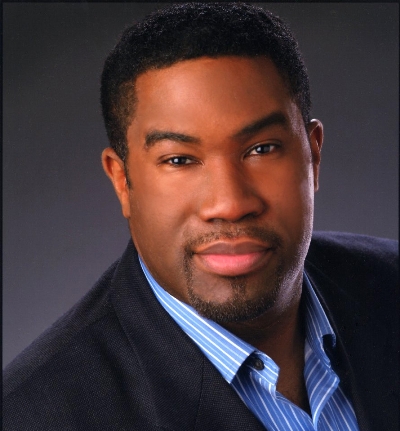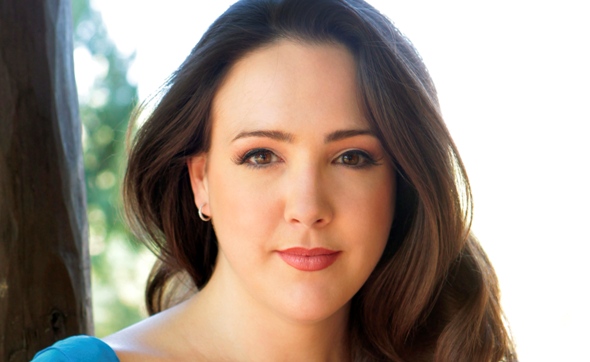After double exposure in Met Opera HD roles, Susanna Phillips ready for 2 more in Chicago
Interview: Soprano Susanna Phillips, already booked for a Schubertiade with Eric Owens at Symphony Center, has been tapped for Chicago Symphony Orchestra concerts May 15-17.
By Nancy Malitz
Soprano Susanna Phillips, hot from back-to-back Metropolitan Opera HD simulcasts that reached a couple of hundred thousand international viewers each, is heading into a week-long and half-unplanned stint in Chicago, where many classical music enthusiasts doubtless think of her as the auspiciously talented soprano from the Ryan Opera Center, Lyric Opera’s professional artist development program.
But that was 2005-07. How great it must now feel to be in the shoes of this pure-voiced, luxurious-sounding singer at the top of her game, gifted at both comedic high spirits and big-screen intimacy, and obviously adept at managing the lightning-quick opportunities that come an opera singer’s way.
 On Mother’s Day she joins her colleague bass-baritone Eric Owens in a cleverly conceived Schubertiade at Symphony Center that also features pianist Myra Huang and two artists from the Chicago Symphony Orchestra – clarinetist John Bruce Yeh and French horn player Daniel Gingrich. Hard upon that she begins rehearsals for Chicago Symphony Orchestra concerts May 15-17 in which both conductor and soloist are substitutes – Phillips for soprano Dorothea Röschmann, who was scheduled to perform Strauss’ Four Last Songs and has withdrawn due to laryngitis, and Edo de Waart (current music director of the Royal Flemish Philharmonic and Milwaukee Symphony) for Russian conductor Vladimir Jurowski, who has also withdrawn on doctors’ advice.
On Mother’s Day she joins her colleague bass-baritone Eric Owens in a cleverly conceived Schubertiade at Symphony Center that also features pianist Myra Huang and two artists from the Chicago Symphony Orchestra – clarinetist John Bruce Yeh and French horn player Daniel Gingrich. Hard upon that she begins rehearsals for Chicago Symphony Orchestra concerts May 15-17 in which both conductor and soloist are substitutes – Phillips for soprano Dorothea Röschmann, who was scheduled to perform Strauss’ Four Last Songs and has withdrawn due to laryngitis, and Edo de Waart (current music director of the Royal Flemish Philharmonic and Milwaukee Symphony) for Russian conductor Vladimir Jurowski, who has also withdrawn on doctors’ advice.
When I caught up with Phillips by telephone prior to her second Met HD telecast, she sounded every bit the trouper who has learned to take such things in stride, recalling that her own recent HD debut, as Musetta in “La bohème,” was actually made easier because of a last-minute emergency involving the Mimi. Soprano Kristine Opolais got the call at 7:30 a.m. on the day of the HD telecast, to sing Mimi after having sung “Butterfly” the night before, when the scheduled Anita Hartig fell suddenly to the flu. The world awoke to Peter Gelb’s APB from the Met, but Phillips, who was preoccupied with her own HD debut, didn’t learn about it right away.
“It was the funniest thing,” she said. “Of course there is drama at the opera house every single day, and with this kind of thing, my first HD event, I had no idea what to expect, and I was really very nervous on that morning of the broadcast. But when I got to work and found out what happened, I calmed completely down because I realized that all the focus was off me. We were all hyper aware of her at all times, of course, because we understood that she was not familiar with the staging, and sometimes we had to vamp a little bit to make it work, but she really rose to the occasion. One of the cool things about that kind of beautifully conceived production is that if something does happen – somebody goes left instead of right – it’s not really that much of an issue because the characters are very well formed and they are going to be able to respond and react realistically.”
Phillips also recalled a time when it was Owens who saved the day – as Raimondo, the disapproving chaplain in Donizetti’s “Lucia di Lammermoor.” Phillips was singing Lucia, the tragically manipulated daughter, denied in love and driven mad, with her hometown Alabama opera company.
“The gentleman playing Raimondo had to withdraw three days out,” Phillips recalls, “and Eric was so gracious to come down and sing the part. I’ll never forget his big aria (‘Dalle stanze’) in Act 3. There was this one moment of silence and you could hear somebody in the audience say ‘Wow!’ and Eric kept right on singing, just blowing people away.”
For the Schubertiade, Phillips and Owens will alternate in some of Schubert’s most beloved Lieder and each will also participate in an expanded performance with instrumental obbligato – Phillips in “The Shepherd on the Rock” (Der Hirt auf dem Felsen), which is often termed a cantata for voice and clarinet, and Owens in “On the River” (Auf dem Strom), transposed from its original tenor to baritone. It begins with a long passage of unforgettable beauty for the horn. Both of these trios come from the last year of Schubert’s life, when he was clearly in Beethoven’s thrall.
The singers will get some additional mileage out of the program by doing it again at the Aspen Music Festival and the Twickenham Festival (in Alabama) this summer and into next season as well. They have also sung it recently in Kalamazoo at the Gilmore International Keyboard Festival, during the 25th anniversary season.
Phillips’ second Met HD role, as the fiercely loyal — and then fickle — Fiordiligi in Mozart’s beloved comic opera “Così fan tutte,“ marked the return of music director James Levine to the podium after a prolonged recovery from back surgery that has left him paralyzed from the waist down. Levine first prepared “Così” for the Met’s season-opening week in September 2013 and the reprised it with the same cast for a spring cycle and the HD broadcast. It was a time of great joy for all involved, because the maestro was clearly in robust artistic shape, with enormous upper body strength and overall vigor despite his infirmity, as the adjacent video reveals.
“He came back with a bang,” marvels Phillips, “and it was remarkable to hear the New York community really respond to his return and give him the warmth due. For me personally, it was wonderful that ‘Così’ is one of his favorite operas, but also a little scary, because he knows every word, every note, and he was very specific and involved in the whole process.” It was only Phillips’ second time in the role, after debuting it with the Santa Fe Opera.
 “He doesn’t work at the piano and I like that,” says Phillips of Levine’s preparation style. “He speaks a lot, telling you why he wants something, and he really works with the voice you have and the things you bring to the table physically, emotionally and dramatically, to create the best possible version of the part for you and him together. When you think of all the amazing Fiordiligi’s he has worked with and how very different they are from each other – Carol Vaness and Renée Fleming just for example – then it’s clear he’s there to cater to whatever the specific needs are and the greatest possibilities for the moment.”
“He doesn’t work at the piano and I like that,” says Phillips of Levine’s preparation style. “He speaks a lot, telling you why he wants something, and he really works with the voice you have and the things you bring to the table physically, emotionally and dramatically, to create the best possible version of the part for you and him together. When you think of all the amazing Fiordiligi’s he has worked with and how very different they are from each other – Carol Vaness and Renée Fleming just for example – then it’s clear he’s there to cater to whatever the specific needs are and the greatest possibilities for the moment.”
These are breakthrough seasons in the careers of both Phllips and Owens, who are still developing roles and making key international debuts. Chicago’s Lyric Opera recently announced that Owens will sing the Wagnerian role of the great god Wotan in a new David Pountney production of the Ring Cycle that will begin rolling out in 2016. (He already is a leading Alberich, Wotan’s nemesis, throughout the opera world.)
Meanwhile, Phillips is in the middle of her role debut cycle at the Met; next season marks her seventh consecutive new role introduction, this time as Antonia in Offenbach’s “Tales of Hoffmann,” opposite former fellow Ryan Center alum Matthew Polenzani (1995-97) as the tortured poet. Phillips also sang Ellen Orford in a concert version of “Peter Grimes” at Carnegie Hall in November, opposite Anthony Dean Griffey in the title role with David Robertson and forces of the St. Louis Symphony and Chorus on the 100th anniversary of Benjamin Britten’s birth. It was actually one of those crisis-ridden weeks in the Big Apple, because Griffey was also called upon as one of two tenors to replace an ailing Paul Appleby … but that’s another story.
Tags: Anita Hartig, Daniel Gingrich, Dorothea Röschmann, Edo de Waart, Eric Owens, James Levine, John Bruch Yeh, Kristine Opolais, Lyric Opera of Chicago, Metropolitan Opera, Myra Huang, Peter Gelb, Ryan Center, Schubert, Susanna Phillips, Vladimir Jurowski



